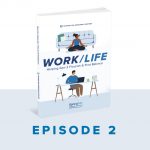Migrant and Immigrant Young People Need Mentors Too
Relational Authority can offer steps for caring for this community
Mentors can help create a sense of belonging and meaning in the lives of young people. But according to The State of Religion & Young People 2020: Relational Authority, the annual report from Springtide Research Institute, 1 out of 4 young people does not have a trustworthy adult they can turn to. From my own experience, I know that without these kinds of mentors, it can become more difficult for young people to create lasting friendships or find meaning in their everyday life—leaving them with feelings of solitude, anxiety, and depression.
I work as a counselor for migrant and refugee families, and I have encountered people who struggle every day to provide food, housing, and education for their children. They face difficult circumstances in a strange country; not understanding the language turns even the simplest tasks into major obstacles. The difficulty of finding work and learning the basics of their new life—the very things they hope will bring ease to their situation—are amplified among these constant obstacles.
They come home from work tired and confused, and often their fatigue prevents them from the kind of leisurely or stress-free evening that might help them develop deep ties with their children. Those parents who can muster the energy to forge these connections in their evenings often assume their children’s experiences are like their own from adolescence and young adulthood—but in reality, those norms and ways of communicating are often irrelevant for their children who now live in a totally different context. Even amid the best attempts, this lack of communication opens even greater gaps; given the lack of connection, young people feel isolated and misunderstood. The loneliness and frustration in children of migrants and refugees come quickly and take on multiple shapes. Children have difficulties learning new languages and their parents spend all their energy working. Distance increases and the rules under which parents were raised don’t seem to apply to this new country where children have different experiences.
In recent evaluations from Migrant Education Program, parents mention emotional health for their children among their greatest needs. They point to their children’s lack of interest in sports, low grades, and suicidal thoughts. They also mention that their children do not feel part of any specific group and end up joining gangs or spending time on social networks only to feel part of something.
In conversations with migrant and refugee youth, we hear about systemic inequalities in treatment at school. Many of these young people lack mentors who encourage and advocate for them. As a result, they miss out on opportunities that are already difficult to access due to their limited English and the fact that they and their parents are often unaware of expectations the school has for student participation and involvement. Many migrant students report feeling excited about participating in sports but lack the means to buy equipment; or, due to variety of factors—many related to access to resources—they sometimes have low grades that don’t allow them to participate.
These issues highlight the importance of Relational Authority as a framework for providing continual support for young people. We need to create and foment teams of trustworthy adults who are prepared to be mentors in a context of mutual respect and cultural diversity. We already know the general population of young people need good mentors; migrant and immigrant young people need these kinds of relationships even more critically.
COVID-19 has increased feelings of loneliness and depression among young people. Some of the logistical concerns of COVID have also impacted migrant and immigrant young people. Although most of our students have smart phones that enable them to connect with a huge array of “friends,” in truth their connections are tenuous and cannot fulfill the everyday emotional needs. We have also hear about the hopelessness and shame that these young people feel during online classes if they are forced to turn on their cameras. Many feel exposed when they have to show their living spaces and the people they live with. Thus, more problems emerge. Some teachers mark them absent and parents get calls from the school. In some cases, the attendance monitors threaten legal action against parents. Children say they were in class but simply did not turn their cameras on. By engendering more conflicts in families, this type of situation highlights the need for mentors to mediate some of the disconnects arising between families and school authorities.
We should also mention that many of our young Americans do not identify with the religion of their parents. They do not approach other churches either because they do not know what they are about or because they aren’t interested. Many migrant and refugee families arrive with established ideas about gender and sexual identity. These two factors can make conversations around topics of identity, meaning, and community very difficult. Parents are unsure of how to orient their children when such questions were not discussed during their own upbringing.
The State of Religion & Young People 2020: Relational Authority is a timely arrival. The task of identifying problems and supporting our youth is urgent. We need mentors who will listen and practice transparency, who care about young people, adults with integrity and expertise working with young people who are searching for meaning in a new country and meaning in families in which parents and children are living a struggle over new and old expectations. These young people need role models who look like them, who respect them, and can give them hope. Young people trust adults who show interest in what they have to say—who not only listen but register conversations.
For those of us who work with young people, this report shows honest and smart steps to become better mentors to young people in any context.
Araceli Calderon de Weis is the Program Coordinator for Centennial BOCES/ Migrant Education Program and is a member of the Research Advisory Board at Springtide.
Photo by NEXT Academy on Unsplash






